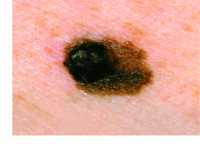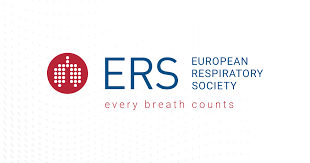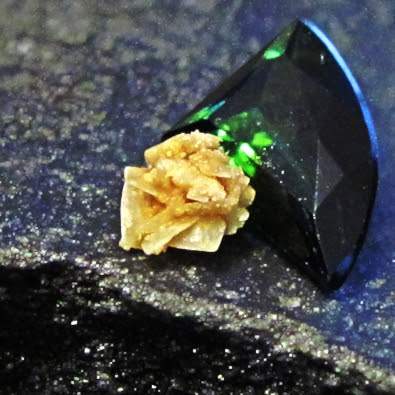It isn’t always easy to decide what kind of career you should pursue, particularly when there are so many options available. A lot of people can find it overwhelming to think about what they want to do with their life, and finding a role that makes them happy while providing enough security that they are comfortable isn’t always straightforward. Although there are several industries and specialist fields you can explore, one area to work in that can offer a lot is the healthcare sector.
Working in healthcare is not only a career choice that can provide numerous interesting job opportunities, but it is also one that you can be proud of. This industry is vital to keeping members of society healthy and plays an active part in saving people’s lives, too. With the innovations and discoveries in medical science, it’s also a fascinating area to work in, with plenty of impressive trailblazers that you can call your colleagues. If this all sounds good to you so far, you might want to consider these further reasons to at least consider a career in the healthcare sector.
(more…)
Aging, Author Interviews, Brigham & Women's - Harvard, Frailty, Geriatrics, JAMA / 22.09.2022
Frailty Scores in Elderly Unaffected by Supplemental Omega-3 or Vitamin D
MedicalResearch.com Interview with:
Ariela Orkaby, MD, MPH
Geriatrics & Preventive Cardiology
Associate Epidemiologist
Division of Aging, Brigham and Women's Hospital
Assistant Professor of Medicine, Harvard Medical School
MedicalResearch.com: What is the background for this study?
Response: As the population is living longer, there is increased risk of frailty and vulnerability. Frailty is defined as reduced physiological reserve and decreased ability to cope with even an acute stress. Up to half of adults over the age of 85 are living with frailty and preventative measures are greatly needed. We tested the effect of vitamin D and marine omega-3 fatty acid supplementation on the risk of developing frailty in healthy older adults in the US enrolled in the VITamin D and OmegA-3 TriaL (VITAL) trial.
(more…)
Alzheimer's - Dementia, Author Interviews, Infections, Parkinson's / 22.09.2022
Hospital-Treated Infections And Risk of Later Life Neurodegenerative Diseases
MedicalResearch.com Interview with:
Jiangwei Sun PhD
Postdoctoral researcher
in Prof. Jonas Ludvigsson's group
Department of Medical Epidemiology and Biostatistics
Karolinska Institutet
MedicalResearch.com: What is the background for this study?
Response: A potential infectious etiology has been hypothesized for neurodegenerative diseases, as findings in animal studies have demonstrated that infectious processes might impact pathogenesis, phenotype, and progression of neurodegenerative disease.
The extrapolation of such findings to a human context is however not straightforward. previous studies have mostly examined the role of specific pathogens on a specific neurodegenerative disease, e.g., herpesvirus for Alzheimer’s disease, and influenza, hepatitis C virus, and Helicobacter pylori for PD, with inconclusive results. Although several studies have also assessed associations between infectious diseases and risk of dementia and AD, influence of potential surveillance bias (greater-than-expected surveillance of disease after infections) and reverse causation (due to for example diagnostic delay of neurodegenerative diseases) on the associations was not always fully addressed.
Therefore, whether infection is indeed a risk factor rather a comorbidity or secondary event of neurodegenerative disease remains unknown. In contrast to Alzheimer’s disease, and Parkinson’s disease, the potential link between infection and ALS has been less explored.
(more…)
Author Interviews, Cancer Research, Dermatology, Melanoma / 22.09.2022
Melanoma: Tel-Aviv University Study Finds Blocking Two Key Proteins May Block Brain Metastases
MedicalResearch.com Interview with:
“Prof. Ronit Satchi-Fainaro, the Director of the Cancer Biology Research Center led this study with an outstanding PhD student, Sabina Pozzi”
Prof. Ronit Satchi-Fainaro, Ph.D.
Head, Cancer Research and Nanomedicine Laboratory
Kurt and Herman Lion Chair in Nanosciences and Nanotechnologies
Director, Cancer Biology Research Center
Department of Physiology and Pharmacology
Sackler Faculty of Medicine
Sagol School of Neuroscience
Tel Aviv University, Tel Aviv 69978, Israel
MedicalResearch.com: What is the background for this study?
Response: Cutaneous melanoma is the deadliest of all skin cancers, especially due to its tendency to invade and develop metastases with an incidence of brain metastasis development of 40% to 50% in patients with melanoma stage IV (although the incidence post mortem is 70–90%).
We know that the brain microenvironment represents the first line of reaction in favor or against the tumor due to its dual ability to generate an immune-stimulatory or immunosuppressive niche, which will ultimately determine the establishment and growth of melanoma brain metastasis. Among the brain-resident cells, astrocytes are responsible for the maintenance of the brain homeostasis, and subsequent to melanoma brain colonization, they sustain and foster the growth of melanoma cells
(more…)
Author Interviews, Diabetes, JAMA, Pediatrics / 20.09.2022
USPSTF: Assesses Benefits and Harms of Screening for Prediabetes and Type 2 Diabetes in Children and Adolescents
MedicalResearch.com Interview with:
Michael Cabana, M.D., M.A., M.P.H
Professor of Pediatrics
Albert Einstein College of Medicine
Physician-in-chief at the Children's Hospital at Montefiore
Chair of the Department of Pediatrics at the Albert Einstein College of Medicine.
Dr. Cabana joined the U.S. Preventive Services Task Force in January 2019
MedicalResearch.com: What is the background for this study?
Response: Prediabetes and type 2 diabetes have historically been far more common in adults, but the number of children and teens who have these conditions is rising. However, there is still very limited research on whether screening, early detection, and early treatment of diabetes will improve a child’s long-term health. Due to this lack of evidence, the Task Force was unable to assess the benefits and harms of screening, particularly in Black, Hispanic, American Indian, and Pacific Islander populations, who are at a significantly higher risk of developing type 2 diabetes. We are calling for more research on this important topic.
(more…)
Author Interviews, Biogen, NEJM, Rheumatology / 15.09.2022
BIOGEN: Trial of Anti-BDCA2 Antibody Litifilimab for Systemic Lupus Erythematosus
MedicalResearch.com Interview with:
Nathalie Franchimont, M.D., Ph.D.
Senior Vice President, Head of Multiple Sclerosis and Immunology
Head of the Multiple Sclerosis and Immunology Development Unit
Biogen
MedicalResearch.com: What is the background for this study? What are the main findings?
Response: Systemic lupus erythematosus (SLE) is a chronic autoimmune disease that affects multiple organ systems. Rash and arthritis are among the most frequent manifestations of the disease and severe organ damage can also occur especially when organs like the kidney are affected. Litifilimab (known as BIIB059) is a monoclonal antibody being studied for the potential treatment of SLE and cutaneous lupus erythematosus (CLE).
The Phase 2 LILAC study evaluated litifilimab versus placebo in two parts: Part A in participants who have SLE with active joint and skin manifestations; and Part B in participants with active CLE, including chronic and subacute subtypes, with or without other organ involvement. Results from the SLE portion of the study (Part A) show litifilimab met the study’s primary endpoint by significantly reducing total active joint count compared to placebo. Total active joint count was defined as the total number of tender or swollen joints. Litifilimab was generally well tolerated, with most reported adverse events (AEs) rated as mild or moderate. Note, this Phase 2 trial was not powered to assess secondary endpoints.
Based on these positive Phase 2 results, Biogen is currently enrolling participants into the Phase 3 TOPAZ-1 and TOPAZ-2 studies, which will evaluate the efficacy and safety of litifilimab in participants with active SLE worldwide.
Part B results from LILAC were published separately in NEJM on July 28, 2022 and expand the body of evidence supporting litifilimab as a potential first-in-class therapy for cutaneous lupus erythematosus in addition to SLE.
(more…)
Aging, Author Interviews, Brigham & Women's - Harvard, Frailty, Geriatrics, JAMA, Medical Research Centers, Supplements / 15.09.2022
Harvard Study Evaluates Vitamin D and Omega-3 Supplementation on Frailty Prevention
MedicalResearch.com Interview with:
Ariela Orkaby, MD, MPH
Geriatrics & Preventive Cardiology
Associate Epidemiologist
Division of Aging, Brigham and Women's Hospital
Assistant Professor of Medicine, Harvard Medical School
MedicalResearch.com: What is the background for this study?
Response: As the population is living longer, there is increased risk of frailty and vulnerability. Frailty is defined as reduced physiological reserve and decreased ability to cope with even an acute stress. Up to half of adults over the age of 85 are living with frailty and preventative measures are greatly needed. We tested the effect of vitamin D and marine omega-3 fatty acid supplementation on the risk of developing frailty in healthy older adults in the US enrolled in the VITamin D and OmegA-3 TriaL (VITAL) trial.
(more…)
Allergies, Asthma, Author Interviews / 15.09.2022
Does Pollen Cause Your Asthma Here’s How To Handle It
Knowing about pollen forecasts might help you understand how much pollen will be released in your area and when....
Author Interviews, Geriatrics, JAMA / 15.09.2022
Older Adults with Cognitive Issues Are Susceptible to Large Financial Losses
MedicalResearch.com Interview with:
Jing Li, PhD
Assistant Professor of Health Economics
The Comparative Health Outcomes, Policy and Economics (CHOICE) Institute
University of Washington School of Pharmacy
MedicalResearch.com: What is the background for this study?
Response: Dementia and other cognitive impairment are highly prevalent among older adults in the U.S. and globally, and have been linked to deficiencies in decision-making, especially financial decision-making. However, little is known about the extent to which older adults with cognitive impairment manage their own finances and the characteristics of the assets they manage.
(more…)
Author Interviews, Pulmonary Disease, Surgical Research / 13.09.2022
CELEB Trial: Surgical vs Bronchoscopic Lung Volume Reduction
MedicalResearch.com Interview with:
Ms. Sara Buttery
Research Physiotherapist at Royal Brompton &
Harefield NHS Foundation Trust
University of the West of England
London, England, UK
MedicalResearch.com: What is the background for this study? Would you describe the BVLR technique?
Response: The CELEB trial is a multicentre randomised controlled trial that was carried out at five centres across the UK, with the objective of investigating if Lung volume reduction surgery (LVRS) is significantly superior to Bronchoscopic lung volume reduction (BLVR) in people who are suitable for both procedures.
BLVR is a minimally invasive method of lung volume reduction whereby a fibreoptic camera is passed through the mouth, rather than by an incision in the chest wall as is the case with LVRS. The CELEB trial compared endobronchial valves (EBVs) as a type of BLVR, to LVRS. EBVs are designed to prevent airflow into the treated lobe, but allow air and mucus to exit. EBV treatment can be carried out under general anaesthetic or sedation.
The primary outcome for the CELEB trial was the iBODE index score at 12 months post procedure, as a measure of disease severity.
(more…)
Author Interviews, Cancer Research / 08.09.2022
Early Onset Cancers Rising Worldwide, Especially of GI Tract
The rising incidence of early-onset cancers is likely at least partly attributable to enhanced screening and early detection. However, there...
Author Interviews, Cost of Health Care, Dermatology, JAMA / 08.09.2022
Private Equity and Health Care: More Patients, More Charges
MedicalResearch.com Interview with:
Jane M. Zhu, M.D., M.P.P., M.S.H.P.
Assistant Professor of Medicine
Division of General Internal Medicine and Geriatrics
School of Medicine
Oregon Health & Science University
Portland, Oregon
MedicalResearch.com: What is the background for this study?
Response: Private equity (PE) acquisitions of physician practices are accelerating across many specialties, but there is still little robust evidence on the effects of these acquisitions. Concerns about PE involvement is predicated on the fact that these firms expect high annual returns, which require either reducing costs or increasing revenue, or both. Using PE acquisition data from 2016-2020, linked to commercial claims data, we sought to understand what common mechanisms of revenue generation were being adopted after private equity acquisition of physician practices.
(more…)
Author Interviews, Exercise - Fitness, Genetic Research, Lifestyle & Health, Nature / 08.09.2022
Genes Predisposing To Active Lifestyle Likely Identified
MedicalResearch.com Interview with:
Marcel den Hoed, PhD
Researcher,Department of Immunology, Genetics and Pathology
Uppsala University
MedicalResearch.com: What is the background for this study? What are the main findings?
Response: In this paper we performed a multi-ancestry meta-analysis of 51 genome-wide association studies, in data from over 700,000 individuals. This yielded 11 DNA regions that are robustly associated with self-reported moderate-to-vigorous intensity physical activity during leisure time (MVPA), and 88 DNA regions for self-reported leisure screen time (LST).
Around half of the identified DNA regions are also associated with objectively assessed physical activity traits in data from the UK Biobank. Causal inference using a Mendelian randomization approach subsequently showed bidirectional causal effects between LST and body mass index (BMI), with the effect of LST on BMI being 2-3-fold larger than vice versa. Less LST and more MVPA protect from diabetes, attention deficit hyperactivity disorder, depression, and earlier age at death, with all causal effects of MVPA and leisure screen time being mediated or confounded by BMI. Further analyses showed that DNA regions associated with LST are more often located close to genes whose expression in skeletal muscle is altered by strength training than expected by chance, suggesting that these genes may influence the likelihood of adopting an active lifestyle by influencing the response to training.
(more…)
Author Interviews, Brigham & Women's - Harvard, Cancer Research, JAMA, Lancet, Lung Cancer, Medical Imaging, Technology / 07.09.2022
Lung Cancer: Human-AI Collaboration Can Accelerate Time to Treatment
MedicalResearch.com Interview with:
Raymond H. Mak, MD
Radiation Oncology Disease Center Leader for Thoracic Oncology
Director of Patient Safety and QualityDirector of Clinical Innovation
Associate Professor, Harvard Medical School
Cancer - Radiation Oncology, Radiation Oncology
Department of Radiation Oncology
Brigham and Women's Hospital
MedicalResearch.com: What is the background for this study? What is the algorithm detecting?
Response: Lung cancer, the most common cancer worldwide is highly lethal, but can be treated and cured in some cases with radiation therapy. Nearly half of lung cancer patients will eventually require some form of radiation therapy, but the planning for a course of radiation therapy currently entails manual, time-consuming, and resource-intensive work by highly trained physicians to segment (target) the cancerous tumors in the lungs and adjacent lymph nodes on three-dimensional images (CT scans). Prior studies have shown substantial variation in how expert clinicians delineate these targets, which can negatively impact outcomes and there is a projected shortage of skilled medical staff to perform these tasks worldwide as cancer rates increase.
To address this critical gap, our team developed deep learning algorithms that can automatically target lung cancer in the lungs and adjacent lymph nodes from CT scans that are used for radiation therapy planning, and can be deployed in seconds.
We trained these artificial intelligence (AI) algorithms using expert-segmented targets from over 700 cases and validated the performance in over 1300 patients in external datasets (including publicly available data from a national trial), benchmarked its performance against expert clinicians, and then further validated the clinical usefulness of the algorithm in human-AI collaboration experiments that measured accuracy, task speed, and end-user satisfaction.
(more…)
Author Interviews, Cancer Research, JAMA / 06.09.2022
T-Cell Sequencing May Allow Relapsed Multiple Myeloma Patients to Respond to Further Therapies
MedicalResearch.com Interview with:
Samir Parekh, MBBS
Hematology-Oncology, Cancer
Director of Translational Research in Myeloma and
Co-leader of the Cancer Clinical Investigation program
The Tisch Cancer Institute
Icahn School of Medicine at Mount Sinai
MedicalResearch.com: What is the background for this study? What are the main findings?
Response: Clinical outcomes for myeloma patients patients have improved significantly over the past decade with the introduction and success of newer immunomodulatory treatments such as CART cell therapy and bispecific antibodies. Strategies are needed to determine the best treatment options for patients relapsing or unresponsive to initial courses of these types of therapies.
We analyzed the outcomes of patients relapsing after bispecific antibody therapy for myeloma. Our data shows that sequencing of bispecific antibodies or CART after initial bispecific failure can effectively salvage patients and lead to excellent outcomes in myeloma. This provides the foundation for future studies combining this new class of immunotherapy with CART or additional bispecific antibodies to improve outcomes in myeloma.
(more…)
Author Interviews, Heart Disease, JAMA, Primary Care, Stroke, USPSTF / 06.09.2022
USPSTF Evaluates Statin Use for Primary Prevention of Heart Disease
MedicalResearch.com Interview with:
Katrina E. Donahue, M.D., M.P.H.
Professor and Vice Chair of Research
Chapel Hill Department of Family Medicine
University of North Carolina
Dr. Donahue joined the U.S. Preventive Services Task Force in January 2020.
MedicalResearch.com: What is the background for this study? What are the main findings?
Response: Heart disease and stroke are the leading causes of death in the U.S. The Task Force found that people who are 40 to 75 years old and at high risk for heart disease should take a statin to help protect their health.
People in this age group who are at increased risk but not high risk should make an individual decision with their healthcare professional about whether taking a statin is right for them. There is not enough research to determine whether statins are beneficial for people 76 years and older.
(more…)
Author Interviews, Nature, Stem Cells / 05.09.2022
Scientists Develop Mouse Embryo from Stem Cells, Including Brain and Beating Heart
MedicalResearch.com Interview with:
Gianluca Amadei PhD
Post-Doctoral Fellow
University of Cambridge, UK
MedicalResearch.com: What is the background for this study? What are the main findings?
Response: The background of this study is that we tried to build a structure that looks and develops like a real mouse embryo using different kinds of mouse stem cells.
The main findings are that the resulting structures develop the entire embryonic body axis and the extraembryonic tissues that are required to support embryonic development. Our structures develop to a stage comparable to 8.5 days of embryonic development of the natural mouse embryos and have a brain and neural tube, a beating heart-like structure, gut and primordial germ cells.
(more…)
Author Interviews, NEJM, Pulmonary Disease, Tobacco Research, University of Michigan / 04.09.2022
COPD: Inhalers Don’t Always Work for Smokers
MedicalResearch.com Interview with:
Meilan K Han MD, MS
Henry Sewall Professor of Medicine
Professor of Internal Medicine and Section Head
Division of Pulmonary and Critical Care Medicine, Medical School
University of Michigan
MedicalResearch.com: What is the background for this study? What are the main findings?
Response: In the NIH sponsored SPIROMICS study we demonstrated that symptomatic, tobacco exposed individuals have frequent exacerbations. Many of these individuals are treated with the same inhaled medications that have shown benefit in COPD, but we don’t have any evidence basis for this practice.
(more…)
Addiction, Author Interviews, Methamphetamine / 02.09.2022
What is Meth Mouth?
Methamphetamine is a highly addictive stimulant drug that is often used recreationally. It is a central nervous system (CNS) stimulant used to treat ADHD and narcolepsy. The drug is highly addictive and should be used only under the supervision of a healthcare provider.
Meth mouth is a slang term used to describe the dental problems resulting from methamphetamine abuse.
The long-term use of methamphetamine can lead to meth mouth due to the detrimental effects the drug has on oral health.
What Are the Signs of Meth Mouth?
The signs of meth mouth can vary depending on the severity of the condition. However, some common signs and symptoms of meth mouth include:
- Severe tooth decay
- Tooth loss
- Missing teeth
- Broken teeth
- Cracked teeth
- Yellow or brown stains on teeth
- Gum disease
- Dry mouth
- Bad breath
- Meth sores
Aging, Annals Internal Medicine, Author Interviews, NIH, Nutrition / 01.09.2022
Tea Drinkers May Live Longer
MedicalResearch.com Interview with:
Maki Inoue-Choi, Ph.D., M.S., R.D.
Staff Scientist
Metabolic Epidemiology Branch
National Institutes of Health
MedicalResearch.com: What is the background for this study?
Response: Tea is rich in bioactive compounds that can possibly protect against health conditions such as cancer and heart disease. A lower risk of death was seen among tea drinkers than non-drinkers in previous studies, but these were largely in populations where green tea drinking is common. In contrast, the studies in populations where black tea drinking is more common have been limited and the findings from these studies have been inconsistent.
(more…)
Author Interviews, Cost of Health Care, JAMA, Pharmaceutical Companies / 31.08.2022
Fewer New Medicines Available in Germany, Compared to United States
MedicalResearch.com Interview with:
Prof. Katharina Blankart, PhD
Faculty of Economics and Business Administration
University of Duisburg-Essen
Essen, Germany
MedicalResearch.com: What is the background for this study?
Response: Given the high drug prices and policy discussions, we were interested whether the US may miss opportunities from medical innovation in availability of medicines compared to Germany. Since 2011, Germany has a unique way to determine value of new medicines after regulatory approval and to negotiate prices. We aimed to find out differences in availability of medicines in these two countries and timing of availability. We evaluated the differences in timing of availability and to characterize medicines not available to one of the two countries.
(more…)
Author Interviews, Heart Disease, NEJM / 30.08.2022
NEJM: Study Compares PCI to Medical Therapy to Reduce Death or Hospitalization from Heart Failure
MedicalResearch.com Interview with:
Dr Holly Morgan M.B., B.Ch.
Clinical Research Fellow and REVIVED investigator
King's College London
MedicalResearch.com: What is the background for this study?
Response: Coronary artery disease is the commonest cause of heart failure. Whilst individually tailored pharmacological and device therapy (optimal medical therapy, OMT) is the cornerstone of management of ischemic heart failure, rates of death and hospitalization for heart failure remain unacceptably high in this population. Given the causative relationship between coronary disease and heart failure, coronary revascularization has long been considered as a treatment option for these patients. Whilst there is randomized evidence to support surgical revascularization with coronary artery bypass grafting (1), none previously existed for percutaneous coronary intervention (PCI) in stable ischemic left ventricular dysfunction. Despite this, patients are frequently offered PCI in this setting (particularly if unsuitable for surgery); driven by the belief that hibernating myocardium will improve in function if blood flow is restored, regardless of the revascularization method. This approach was supported in some international guidelines, though recommendations varied.
The REVIVED-BCIS2 trial aimed to establish whether revascularization with PCI in addition to OMT would improve event free survival in patients with ischemic left ventricular dysfunction, when compared to OMT alone (2). Inclusion criteria included a left ventricular ejection fraction of ≤35%, extensive coronary artery disease (British Cardiovascular Intervention Society jeopardy score ≥6, indicating significant stenoses in the left main coronary artery, proximal left anterior descending coronary artery, dominant circumflex artery, disease in multiple vessels or a combination of these) and viability in at least four dysfunctional myocardial segments which were amenable to PCI. The main exclusion criteria were acute myocardial infarction within 4 weeks of randomisation, angina which limited the patient’s quality of life or decompensated heart failure or sustained ventricular arrhythmia within 72 hours.
The primary composite outcome was all-cause death or hospitalization for heart failure; minimum follow up was 24 months. Key secondary outcomes included the change in left ventricular ejection fraction from baseline to follow-up at six and twelve months, myocardial infarction, unplanned revascularization and quality of life assessed with the Kansas City Cardiomyopathy Questionnaire and EQ-5D-5L.
(more…)
Education / 26.08.2022
Why are Rats Used in Medical Research?
The success found through experiments using lab rats is attributed to the amazing comparison in the physiological, anatomical, and genetic...
Author Interviews, OBGYNE, Sexual Health / 25.08.2022
Study Evaluates Sexual Health After Caesarean Vs Vaginal Delivery
MedicalResearch.com Interview with:
Florence Z. Martin
MRC Integrative Epidemiology Unit
Population Health Sciences
Bristol Medical School
University of Bristol, Bristol, UK
MedicalResearch.com: What is the background for this study?
Response: Globally, rates of caesarean section are on the rise. Many things are contributing to this, including increasing maternal age, more women who have had prior caesareans, and changes in maternal preference. One reason that women have been cited to choose a caesarean in an uncomplicated pregnancy is the maintenance of sexual wellbeing postpartum (in other words, after their baby is born). The protection of sexual wellbeing following caesarean section is thought to be via the maintenance of vaginal tone and reduced risk of vaginal tearing.
However, few studies have shown this to be true. Some studies investigating sexual outcomes in the year after birth found no difference between women who gave birth vaginally and those who delivered via caesarean section. Longer term evidence is sparse, with only one study looking up to 16 years postpartum and finding that women who give birth to all their children via caesarean section are at higher risk of experiencing sex-related pain.
To contribute to previous studies and provide the first piece of evidence looking at sexual wellbeing as a whole several years after delivery, we used data from the Children of the 90s study (also known as the Avon Longitudinal Study of Parents and Children or ALSPAC). We aimed to compare sexual enjoyment, sexual frequency, and sex-related pain between women who delivered via caesarean section and those who delivered vaginally up to 18 years postpartum.
(more…)
Author Interviews, Neurology, Stanford / 25.08.2022
Multiple Sclerosis: Decrease in Relapses and Brain Lesions with Ublituximab, Targeting B Cells
MedicalResearch.com Interview with:
Prof. Lawrence Steinman MD
Zimmermann Professor of Neurology & Neurological Sciences, and Pediatrics
Beckman Center for Molecular Medicine Stanford University
Stanford, CA
MedicalResearch.com: What is the background for this study? What are the main findings?
Response: We are publishing the results of two successful phase 3 trials in relapsing MS (multiple sclerosis).
We tested a glycoengineered antibody to B cells. The glycoengineered antibody are more potent in killing the target. They can be delivered more easily. (more…)
Education / 23.08.2022
5 Ways To Help Your Patients Engage
It happens to medical staff a lot.
A patient is called in or attends a consultation with a doctor or nurse, only then not engage in the care required to help them to get better. It can be frustrating and disheartening for even the most seasoned medical professional.
However, research into this area has found that there are a few easy ways that you can keep your patients engaged with their care, which is vital if they have a chronic condition such as diabetes.
So, without further ado, here are some of the best tips to help keep your patients in touch with you.
(more…)
Author Interviews, Colon Cancer, PLoS / 21.08.2022
Study Examines Ways to Reduce Demand for Colonoscopies
MedicalResearch.com Interview with:
Professor Stephen Duffy
Director of the Policy Research Unit in Cancer Awareness, Screening and Early Diagnosis
Centre Lead, Centre for Prevention, Detection and Diagnosis
Queen Mary University of London
MedicalResearch.com: What is the background for this study?
Response: The NHS Bowel Cancer Screening Programme provides 2 yearly screening to men and women aged 60-74, and it is in the process of reducing the starting age to 50 years. The screening method is faecal immunochemical testing (FIT), in which the screenee places a small sample of faeces in a container and mails this back to the lab, which tests the sample for haemoglobin, as bleeding can be a sign of cancer. The screenee is invited for colonoscopy if the level of haemoglobin is higher than 120 micrograms per gram. The system is under considerable pressure as there are limited colonoscopy resources, the programme is working towards a lower age at starting screening and we are still dealing with the backlog caused by the COVID-19 pandemic, and there may be a need to reduce the intensity of screening in order that the colonoscopy services can cope.
(more…)
Author Interviews, Hip Fractures, Vegetarians / 21.08.2022
Risk of Hip Fractures Greater in Vegetarians
MedicalResearch.com Interview with:
James Webster PhD
Lead author
Nutritional Epidemiology Group, University of Leeds
MedicalResearch.com: What is the background for this study?
Response: Hip fractures are the most severe consequence of osteoporosis and are a major public health problem.
There are growing concerns of poor bone health and higher risk of fractures in vegetarians, but prospective studies comparing risk of hip fracture in vegetarians and meat-eaters over time are scarce and limited.
A study of British men and women in the EPIC-Oxford cohort showed a greater risk of hip fracture in pescatarians, vegetarians, and vegans compared to meat-eaters. The only other study on the topic, the Adventist Health Study of US adults, found no clear evidence of a difference in hip fracture risk between vegetarians and meat-eaters, but identified hip fractures through questionnaires, which are susceptible to selective loss to follow-up.
To build on previous research, we investigated the risk of hip fracture in occasional meat-eaters, pescatarians, and vegetarians compared to regular meat-eaters in middle-aged UK women, who are at a greater risk of hip fracture than men, with hip fractures accurately confirmed using objective and complete hospital records.
(more…)
Author Interviews, Diabetes, NEJM, OBGYNE / 19.08.2022
Gestational Diabetes: Lower vs Higher Glucose Levels for Diagnosis
MedicalResearch.com Interview with:
Professor Caroline Crowther MB ChB, DCH, FRANZCOG, MD, DDU, FRCOG, CMFM
Maternal Fetal Medicine Subspecialist
Professor of Maternal & Perinatal Health
Liggins Institue
Waipapa Taumata Rau | University of Auckland
MwdicalResearch.com: What is the background for this study?
Response: Gestational diabetes is a growing and significant health problem worldwide for women affected and their babies. Treatment of gestational diabetes improves maternal and infant health but it remains unclear what degree of maternal hyperglycaemia should be used to make the diagnosis. Because of this uncertainty, recommended diagnostic criteria vary around the world.
The GEMS randomised trial assessed whether use of lower glycaemic diagnostic criteria, recommended by the International Association of Diabetes and Pregnancy Study Groups would improve perinatal health, without increasing maternal risks, compared to use of higher criteria, and to assess the effects on use of the health services.
(more…)
Author Interviews, Kidney Stones, NEJM, Urology / 11.08.2022
NEJM Study Suggests If Having Kidney Stone Surgery, Treat All the Stones
MedicalResearch.com Interview with:
Michael Bailey Ph.D.
Senior Principal Engineer, Applied Physics Laboratory
Associate Professor. Mechanical Engineering
Adjunct Associate Professor Urology
MedicalResearch.com: What is the background for this study?
Response: Small (< 6 mm) kidney stones are common and often are asymptomatic. Do you do surgery or wait for them to cause a problem? Or specifically here if you are getting surgery already for other stones that are causing a problem do you take the time and possibly extra risk of cleaning out the small stone in the kidney or in the other kidney?
(more…)





























